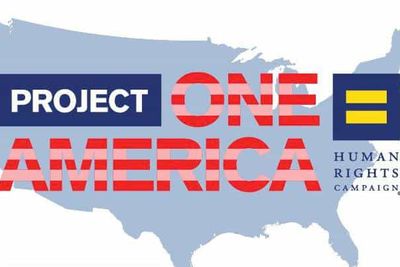The South has long been a region hampered by inequality, not only among its own citizens but its own inequality with other parts of the country. So when looking at LGBTQ issues it is important to acknowledge that the problem is two-fold. The tenuous state court decision striking down Arkansas’s state ban on gay marriage notwithstanding, same-sex marriage has yet to be securely established in the South, and the just-concluded state legislative session saw a number of attempts to roll back gay rights in a number of key venues. From the other side, however, according to a 2014 report by Funders for LGBTQ Issues, national organizations demonstrates a huge disparity in national funding for LGBTQ issues in the South.
The numbers are stark. “Of the estimated 8 million ‘out’ LGBT adults living in the United States, nearly 2.7 million are living in the U.S. South—nearly one-third of all LGBT adults.” When it comes to funding, however, the percentage shifts dramatically. While national foundation funding in 2011 & 2012 provided LGBTQ organizations “$123 million and $121.4 million respectively,” funding for such organizations “based in or serving the 14 Southern states totaled a mere $4.4 million in 2011 and $4.8 million in 2012.” The easy justification for this is that such money would not be well spent and that LGBTQ rights will have to be won at the national level and forced upon the South. But the recent state court decision in Arkansas, and the effective lobbying of local groups like the Tennessee Equality Project reveal this justification to be short-sighted.
Enter the Human Rights Campaign and its new initiative Project One America. In late April 2104, the HRC Blog announced the South’s largest ever coordinated push for LGBT rights, “a comprehensive campaign to dramatically expand LGBT equality in the South through permanent campaigns in Mississippi, Alabama and Arkansas.” With a three-year commitment of $8.5 million and 20 staffers, the roughly $2.8 million the HRC will spend annually in the South in the next three years would equal over 50% of national funding for local LGBTQ issues in the South for 2012.
In a statement, Chad Griffin, HRC president, in his statement, addressed similar concerns as those founded in the Funders Report: “Right now, this country is deeply divided into two Americas—one where LGBT equality is nearly a reality and the other where LGBT people lack the most fundamental measures of equal citizenship. Project One America is an unparalleled effort to close that gap...”
One might wonder why the focus on Mississippi, Alabama and Arkansas. In an email, Hubert Tate, the HRC Press Secretary for Project One America, explained that these states, which face conditions not dissimilar to those across the South, do have one distinct disadvantage: “Unlike other states in the South, these three states lack fully resourced and staffed LGBT statewide equality campaigns.” Pressing for equality and working to change the culture and attitudes in these states, which all neighbor Tennessee, will also contribute to the sense of inevitable change here as well. “While Mississippi, Alabama, and Arkansas will have an intense focus, HRC remains the single largest national LGBT organizer in the South.” And with its new investment, HRC is posed to become one of, if not the, single most significant funder for LGBTQ rights in the South.
Project One America does not signal a diversion of resources. On the very practical level, HRC continues to engage in activism pressing for non-discrimination ordinances in Tennessee cities, like it did in Chattanooga, and for rights statewide. HRC’s presence in Tennessee will remain strong and focused. “We will continue,” Tate vowed, “to make sure HRC’s public education and outreach programs are present in Tennessee and across the South helping to transform the institutions that affect the daily lives of LGBT people.”
To learn more about Project One America, click here.
